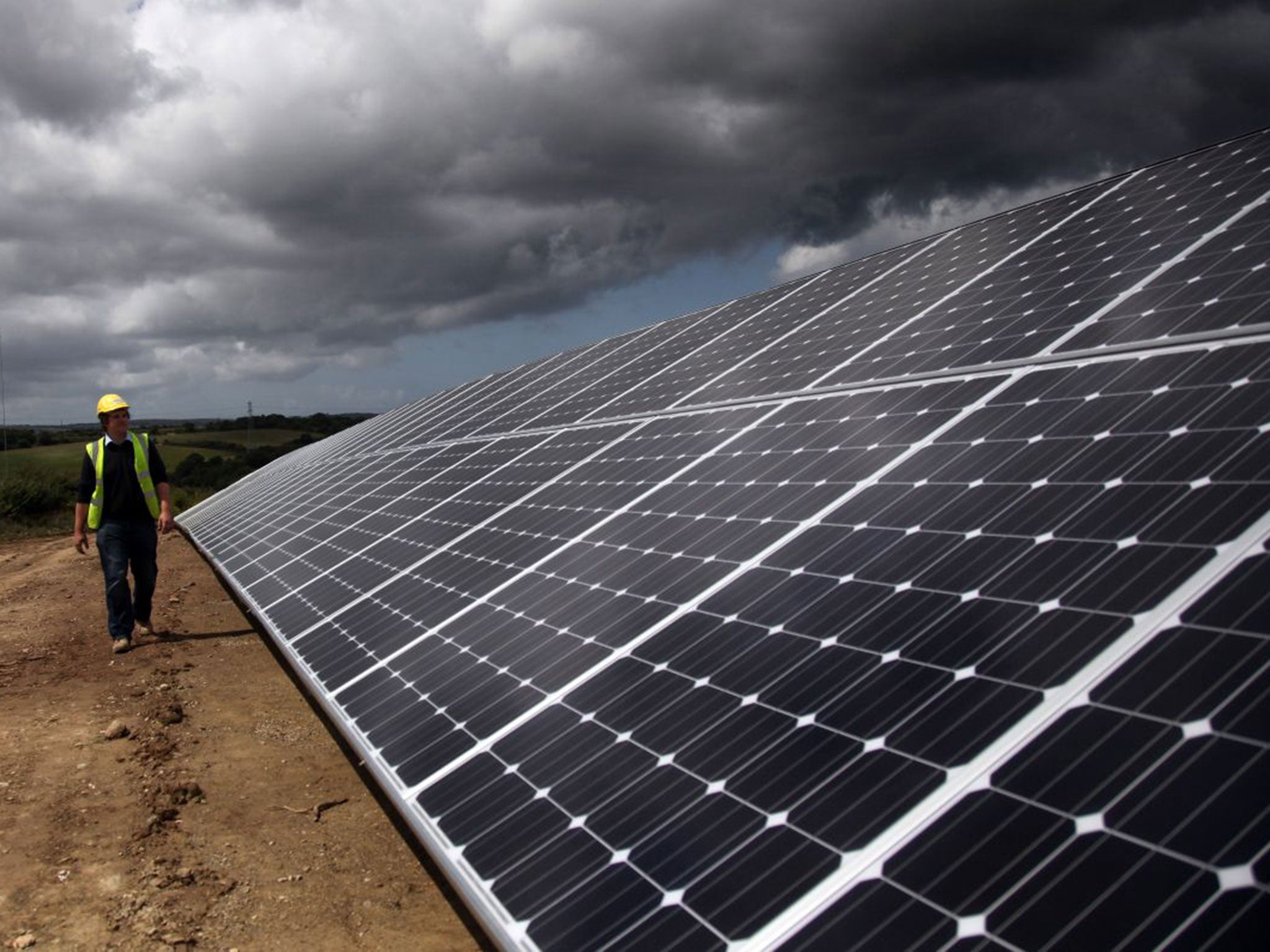UK solar eclipse 2015: blackout to challenge Europe’s electricity supplies
Last comparable eclipse was in 1999, but much less power was generated using solar then

Your support helps us to tell the story
From reproductive rights to climate change to Big Tech, The Independent is on the ground when the story is developing. Whether it's investigating the financials of Elon Musk's pro-Trump PAC or producing our latest documentary, 'The A Word', which shines a light on the American women fighting for reproductive rights, we know how important it is to parse out the facts from the messaging.
At such a critical moment in US history, we need reporters on the ground. Your donation allows us to keep sending journalists to speak to both sides of the story.
The Independent is trusted by Americans across the entire political spectrum. And unlike many other quality news outlets, we choose not to lock Americans out of our reporting and analysis with paywalls. We believe quality journalism should be available to everyone, paid for by those who can afford it.
Your support makes all the difference.Friday's solar eclipse, the first since many countries made a concerted effort to switch to renewable energy, will pose a major challenge to Europe's power supplies.
This week's eclipse will be the most intense since 1999. Since then, countries' reliance on solar power has surged such that even a small change in the amount of sun over the morning of the eclipse could have huge effects on the amount of energy produced.
The effect of the challenge will vary widely,depending on the growth in the use of pholtovoltaic power. Germany, for instance, has turned to solar power hugely since the eclipse in 1999 whereas other countries such as those in Scandinavia have seen less of a change.
In 1999 ,only 0.1 per cent of the renewable energy supply came from solar. But now, 10.5 per cent of the green energy generated in Europe comes from photovoltaic plants.
Last month, the European Network of Transmission System Operators for Electricity, the organisation that makes sure that energy is distributed properly across Europe, said that it was preparing for challenges during Friday's eclipse.
Solar eclipses have happened before but with the increase of installed photovoltaic energy generation, the risk of an incident could be serious without appropriate countermeasures," the group said in a statement.
The eclipse will begin at around 8am on Friday, and run until about 11am.
Join our commenting forum
Join thought-provoking conversations, follow other Independent readers and see their replies
Comments